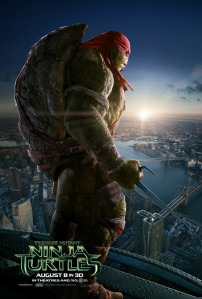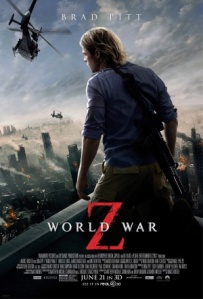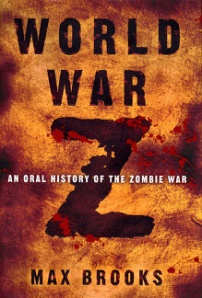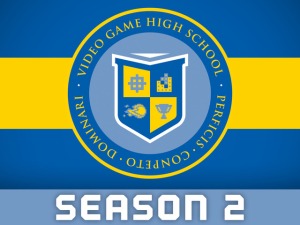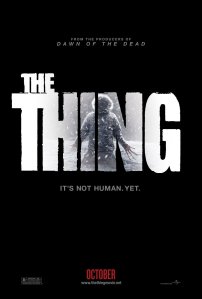The wildly popular Transformers movie franchise is often trounced by critics for a number of reasons. Most commonly I hear about how the movies took a beloved childhood series and strayed from the spirit of the source material. I could not relate. I played with Transformer toys growing up, sure, but I didn’t adamantly watch the series, and I couldn’t have given you any of their names. To me, the movies were nothing more than poorly constructed money farms. Then they announced that Michael Bay was producing a Teenage Mutant Ninja Turtle reboot. But with Bay Just producing, maybe the director had a chance? Jonathan Liebesman. He’s directed a few action films, none of which were of great note. “Still, it’s Turtles” I thought “It can’t be that hard to get right, I mean none of the previous movies were works of art. I’ll just wait to see who they cast”. The realization that Casey Jones wasn’t going to be in the movie was almost as heart wrenching as the fact that Megan Fox was cast as April O’neil. Sorry, I’m letting my nostalgia seep into this review. It’s just that for the first time, I think I know what those true Transformers fans must have felt like.
Teenage Mutant Ninja Turtles is the fifth big screen title for the heroes in a half-shell, and is a complete reboot. The real focal point of the film is April O’neil, who is a doggedly determined reporter that wants to break away from the puff pieces she’s always assigned. This leads her to investigate a local crime organization known as “The Foot”. She learns that someone is thwarting some of The Foot’s operations. She eventually finds herself in a trap set by The Foot to lure out these vigilantes. They are, of course, the titular turtles. As April gets closer to the four reptile brothers, she learns how they came to be, and begins to comprehend just what the villains have in store for the city of New York. Along they way she meets the Turtles Master; a rat named Splinter and their nemesis; The Shredder.
The premise is pretty standard Turtles stuff. It’s a franchise about four anthropomorphic turtles named after renaissance artists who have mastered ninjutsu and fight organized crime in the city. Teenage Mutant Ninja Turtles is a franchise that survives on a mixture of weirdness and charm. This film lacked the charm and amped up the weirdness in all the wrong ways. Megan Fox sucked every quirk out of the character of April o’neil. No longer the smart and tough reporter, she reduced April to a pretty face to look at that served only to spout exposition to the audience. The turtles were…. uncanny. Their faces were unsettling to look at and I simply couldn’t get a tangible grasp on their being and where they belonged in the world of the film. The most frustrating thing was that it felt like the entire cast was on the verge of rolling their eyes because they thought the concept of a Turtle movie was above them. The movie would literally make fun of the weirdness and charm that made this series, and then make half an effort to duplicate it. I once went up with a group of people to sing Bohemian Rhapsody at a karaoke place. I was embarrassed, so rather than get super into it like the others, I attempted to save face and just sort of stood up there awkwardly and quietly sang along while the others were practically rolling on the ground. If the other movies were like the people singing and rolling on the ground, this one was me. None of us could particularly sing very well, but all the others were far more entertaining to watch.
This movie is worse than Turtles in Time a film that is almost universally recognized as the worst in the franchise. A big problem with this film was just how poorly it was written. The villains have no real goals other than some conceited plan to make lots of money, despite already being ridiculously rich. It felt like, with the exception of the turtles themselves, everyone was simply reading a rough draft of the script word for word. Most of the lines were there to blatantly state the obvious to no one except the audience. They spent far too much time explaining the nonsensical plot, and ultimately failed at that. There were one or two jokes that landed, but the majority of the humor was squelched by a lack of enthusiasm and heart. In it’s attempt to be a gritty reboot, Teenage Mutant Ninja Turtles managed to be the one thing I didn’t expect it to be; boring.
If you’re interested in my reviews of the other Turtles movies check them out here.
